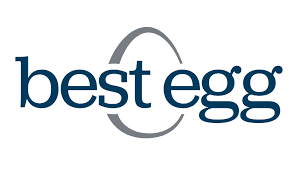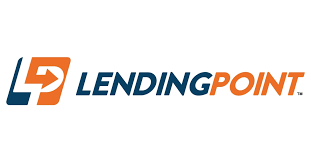Featured Alternative: DebtHammer

- Can help with many types of debt, including payday and credit card
- Extremely transparent process, no shadiness
- Friendly and helpful customer support – no judgment
Table of Contents
8 Best Loan Options for Retirees — Even If You Have Bad Credit
Some of the best lending options, ranked from lowest credit score required to highest, include:
- Upstart
- OneMain Financial
- Avant
- Universal Credit
- Lending Club
- Best Egg
- LendingPoint
- Prosper
Read on to learn more about each of these lenders.
Disclaimer: Some or all of the products featured in this article are from our partners who compensate us. This may influence which products we write about and where and how the product appears on a page. However, this does not influence our evaluations. All opinions are our own.
Four Best Loans for Seniors with Bad Credit

Upstart

OneMain Financial

Avant

Four Best Loans for Seniors with Fair Credit

Lending Club

Best Egg

LendingPoint
Prosper
Pro tip: It is important to remember that your credit score can have a huge impact on your interest rate — one point can sometimes make a big difference in how much you’ll pay: 300-629 is bad; 630-689 is fair; 690-719 is good; 720-850 is excellent. Know your credit score. For example, if it is at 629, bring it up a point, and it will make a world of difference in the interest rate you get. If you know you’re going to need a loan, review your credit reports — copies are free at annualcreditreport.com — and make sure to fix any errors you find.
Interest-Free Loans for Seniors
If you’re looking for an interest-free loan, your best bets will be cash advance apps, Buy Now Pay Later plans or a balance transfer credit card. Here’s how each works:
- Cash advance apps: These apps, like Dave or Albert, offer small short-term loans but charge no interest. Instead, you “tip” the service. Most services also charge a small monthly fee. Many require direct deposit, though, so if you intend to borrow through one of these apps, you’ll likely need to adjust your Social Security direct deposits.
- Buy Now Pay Later plans: These “pay-in-four” plans allow you to make purchases but pay them off in four installments. Many of these plans don’t charge interest. Instead, you pay 25% of the total purchase price every two weeks. It is similar to layaway or “rent to own” plans, except you can use the item immediately, and you won’t be charged the outrageous APRs that “rent to own” companies are known for.
- Balance transfer credit cards: This involves applying for a new credit card that offers a 0% introductory rate APR. The introductory period usually lasts anywhere from 12 to 21 months. You can then use the card to make a big purchase — if the intro rate is good for new purchases — or you can transfer your existing debts onto the new card. You’ll pay a small transfer fee, but the interest-free period allows you some breathing room to pay off your debt incrementally, without busting your monthly budget.
Can a Senior Citizen Get a 30-Year Mortgage?
Yes. there are federal laws in place that prohibit mortgage lenders from age discrimination, which means that older adults will qualify for a 30-year mortgage as long as they meet the application requirements. Even a 90-year-old is eligible.
Pro tip: Purchasing a home by using 30-year mortgage loan could be a good choice if you’re looking for lower monthly payments. Even though mortgage rates are higher than they’ve been in recent years, they’re still considerably lower than the interest rate you’d pay for most personal loans, credit cards or payday loans. The lower mortgage payment from refinancing will give you a bit more flexibility with your budget, particularly for people who are on fixed incomes.
READ MORE: What is a second mortgage?
There are also no age limits for home equity loans, home equity lines of credit (HELOCs) or cash-out refinances (though you will have to pay closing costs). If you have equity in your home and are facing a budget crunch, a second mortgage, cash-out refinance or even a reverse mortgage are a much less expensive way to borrow than most loans targeted toward senior citizens.
READ MORE: What are the three types of reverse mortgages?
Payday Loans for Retirees
Pro tip: This is a very expensive way to borrow. If you’re a retired American, only consider this if you’ve exhausted all of the other options.
How to Qualify for Loans in Retirement
Even if, as a retiree, you’re considered to be on a “fixed income,” it’s possible that you have more sources of income than you think. Lenders will consider all of the following when reviewing a loan application:
- Social Security
- Spousal death benefits
- Pension
- Any retirement accounts (IRAs)
- Income from annuities
- Investment income or dividend payments
- Any wages from a part-time job
Pro tip: You should continue to monitor your credit scores and credit reports in retirement (it’s simple and free), because there’s always a risk of scams or identity theft. Retirees are a common target with scammers.
If your credit score is low, there are some steps you can take now to bolster a bit so that if you need a loan down the road, you’ll be prepared and will qualify for better interest rates. You can even use monthly bills like your phone bill or Netflix subscription to boost your score.
READ MORE: How to recognize and avoid scams
Loan Risks for Seniors
What If You Qualify for Supplemental Security Income?
Here are 5 More Loan Options For Retirees
1. United States Department of Agriculture (USDA) Housing Repair Loans and Grants
These loans are provided to very low-income homeowners so they can repair, modernize or improve their homes. The grants are for these low-income homeowners to remediate health and safety hazards.
- Upside: Loans and grants can be combined for up to $27,500 in assistance, borrowers have 20 years to repay and the interest rate is fixed at 1%
- Downside: This is very specialized lending; your property has to qualify, the grant has a lifetime cap of $7,500 and the grant money must be repaid if the property is sold in less than three years.
2. Car Loan
If you own the title to your automobile or have equity built up, you can quickly get cash with it as collateral. They are informally known as “Fast Auto Loans.”
- Upside: The loans are fast and you can use the money as you want.
- Downside: If you can’t repay the loan, you will lose your car. Loans have high fees and interest rates, the loan amount is only 25%-50% of the car value, and the loan terms are 15 to 30 days, similar to a payday loan.
READ MORE: How do title loans work?
3. Debt Consolidation Loan
A debt consolidation loan is a personal loan that combines several high-interest debts into one new loan, preferably with one lower interest rate. It can be offered by a bank or credit union.
- Upside: There’s one single monthly payment, it helps to streamline finances, approval is quick, you can use the money as you wish, you might get a lower interest rate, it will reduce your monthly payments and it can help build your credit score.
- Downside: You’ll pay high loan origination fees, the loans don’t fix the underlying root of your spending habits and you may pay more in interest over the life of the loan.
READ MORE: Best debt consolidation loans
4. Unsecured Lines of Credit
This type of loan is not secured with collateral. A personal line of credit is one example.
- Upside: There’s no risk of losing personal property, you have flexibility in how much or how little you want to draw and you only pay interest on the amount you draw.
- Downside: If you default, the lender can come after you; you’ll pay higher interest rates; the interest rates are variable; loan amounts are smaller and sometimes you’ll have to pay a balloon payment.
5. Credit Card Cash Advance
This is just like taking money from an ATM, but instead of your debit card, you are using your credit card. It is a short-term cash loan from your credit card.
- Upside: Easy and convenient
- Downside: Interest rates are high, loans are capped at a few hundred dollars, you’ll pay extra bank fees and there will be cash advance fees.
The Bottom Line
Retirement planning can be difficult for older Americans because life often intervenes. And longer life spans mean your limited pool of retirement money needs to last longer. Experts recommend planning to have an income stream that lasts until age 90.
Many experts say your retirement income should be about 80% of your final pre-retirement salary. But many Americans are projected to fall far short of that, and limited income in retirement could lead you to need the occasional short-term option.
There are still plenty of options available for seniors on fixed incomes. Do some research to explore the choices with the lowest rate and risk and stay away from payday loans unless you’ve exhausted all of your other options.
FAQs
Here are a few simple but disheartening reasons: there are not enough borrowing options for seniors, they have no savings or there’s a medical emergency. The only upside of a payday loan is that it is speedy and easy to obtain. But expect to pay a hefty price for this high-risk loan.
No. At one time, there was a loophole that allowed you to “create” a loan from Social Security, but it was closed in 2010. It allowed you to collect benefits at 62, then at 70, repay the loan, and re-file as if you never even took a draw.
Another loophole was known as “file and suspend.” It worked like this:
–A worker at full retirement age or older applied for retirement benefits and then voluntarily suspended payment of their retirement benefits.
–The worker’s voluntary suspension permitted a spousal benefit to be paid to their spouse while the worker was not collecting retirement benefits.
–The worker would then restart their retirement benefits later, for example, at age 70, with an increase for each month retirement benefits were suspended.
File and suspend, too, has been eliminated as an option. It was revised in 2016 and now works like this:
–You can still voluntarily suspend benefit payments at your full retirement age to earn higher benefits for delaying.
–During a voluntary suspension, other benefits payable on your record, such as benefits to your spouse, are also suspended.
If you have suspended your benefits, you cannot continue receiving other benefits (such as spousal benefits) on another person’s record.
Home Equity Conversion Mortgages (HECMs) are federally-insured reverse mortgages and are backed by the U. S. Department of Housing and Urban Development (HUD). What is a Home Equity Conversion Mortgage?
Unlike traditional mortgages, in which borrowers make monthly payments to a lender, with a HECM, the lender makes payments to the borrower toward the primary residence. The amount of money that a homeowner can borrow with a HECM is based on several factors, including the borrower’s age, the home’s value and current interest rates. The loan does not need to be repaid until the borrower sells the home, moves out or passes away. HECM loans can be used for any purpose, but they might be more expensive than traditional home loans, and the upfront costs are usually high. They are only available through FHA-approved lenders.

